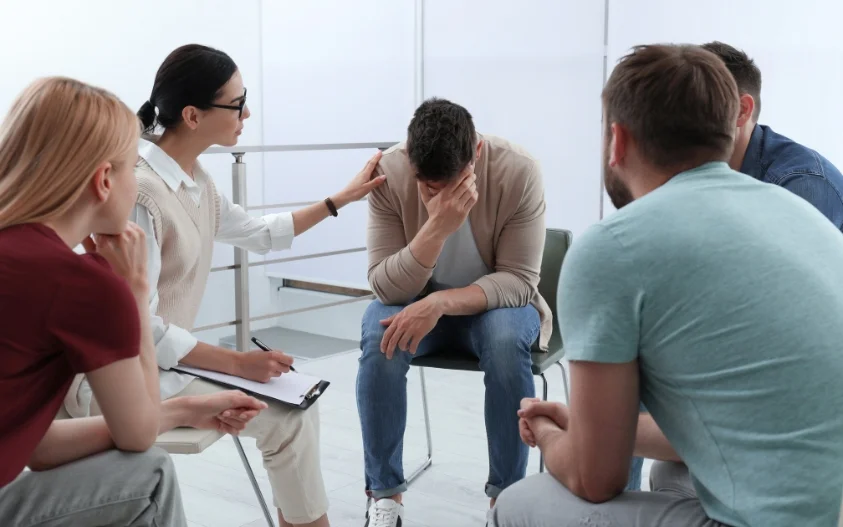24/7 Helpline:
(866) 899-221924/7 Helpline:
(866) 899-2219
Learn more about Depression Treatment centers in Rogers County
Depression Treatment in Other Counties

Other Insurance Options

UnitedHealth Group

Anthem

Multiplan

Excellus

Evernorth

Health Net

WellCare Health Plans

Optum

Ceridian

WellPoint

State Farm

Sliding scale payment assistance

Aetna
Beacon

Cigna

BlueCross

PHCS Network

Kaiser Permanente

Molina Healthcare

Medical Mutual of Ohio

Rogers County Drug Abuse Program
Rogers County Drug Abuse Program is a private rehab located in Claremore, Oklahoma. Rogers County Dr...

Hope Center Ministries – Claremore Women’s Center
Hope Center Ministries - Women's Center is a rehab facility, specializes in the treatment of alcohol...



















































Human Skills and Resources
Human Skills and Resources is a private rehab located in Claremore, Oklahoma. Human Skills and Resou...

Grand Lake Mental Health Center
Grand Lake Mental Health Center is a private rehab located in Claremore, Oklahoma. Grand Lake Mental...

Grand Lake Mental Health Center – South Highway 88
Grand Lake Mental Health Center – South Highway 88 is a private rehab located in Claremore, Oklahoma...

YouthCare of Oklahoma
YouthCare of Oklahoma is an outpatient clinic that provides mental health and substance use treatmen...

AA – Alcoholics Anonymous
AA – Alcoholics Anonymous is a private rehab located in Claremore, Oklahoma. AA – Alcoholics Anonymo...
























